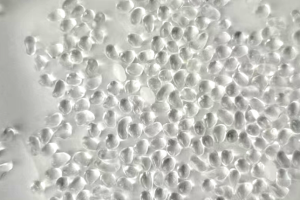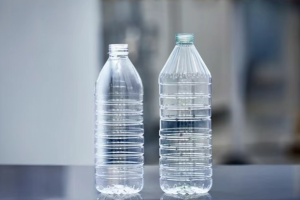April 19, 2025 – A significant breakthrough in plastic pollution governance has emerged. A team led by Professor Deng Hongbing from the School of Resources and Environmental Science at Wuhan University has achieved two remarkable innovations using pollen as the core raw material. They have successfully developed a sponge – like material capable of efficiently capturing micro and nano – plastic particles and created biodegradable and recyclable bioplastics. These research achievements, spanning from pollution treatment to source substitution, form a sustainable closed – loop solution for plastic pollution and have recently been published in the international journals Advanced Functional Materials and Science Advances.

Traditionally, among the millions of tons of agricultural waste biomass generated globally each year, pollen has often been regarded as “waste” due to its hard outer wall and highly inert structure. However, during their research on microplastic removal, Professor Deng’s team discovered that squid chitin exhibits strong trapping ability for micro and nano – plastics. Seizing this opportunity, they used β – chitin extracted from squid bones as a flexible framework and ingeniously incorporated pollen particles to create a new type of sponge – like adsorbent material. “The pollen surface has its own micro and nano – scale texture, which, in synergy with chitin, precisely ‘locks’ micro and nano – plastic particles through multiple mechanisms such as hydrophobicity, electrostatics, and physical interception,” explained Professor Deng.
According to AsiaMB, experimental data shows that this pollen – chitin sponge – like material demonstrates astonishing environmental adaptability. It can effectively adsorb microplastics of different particle sizes, surface charges, and various materials. Moreover, it also shows excellent adsorption performance for hydrophobic pollutants such as drugs, endocrine disruptors, and oils, holding great promise for applications in water purification, industrial wastewater treatment, and many other fields.
In terms of substituting traditional plastics at the source, the team delved deeper into the potential of pollen particles. By softening the pollen through alkaline water treatment and then mixing it with cotton fibers and air – drying, they successfully produced all – natural bioplastics. Associate Professor Zhao Ze, a co – corresponding author of the paper, pointed out that the magic of this bioplastic lies in the utilization of the shape differences between pollen and cotton fibers, which combine tightly like “bricks and cement,” endowing it with both strength and toughness. More notably, the production process of this bioplastic is environmentally friendly. It can be recycled through water treatment after use and can be completely degraded by microorganisms within half a year without generating microplastics. This makes it a promising ideal substitute for traditional plastics, offering a brand – new approach to global plastic pollution governance.














